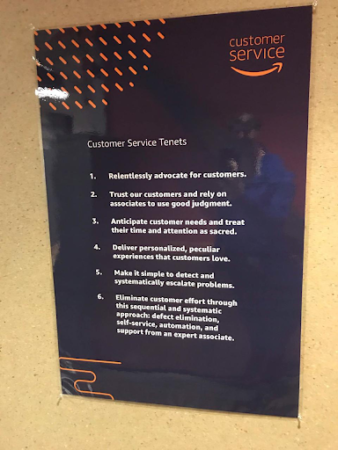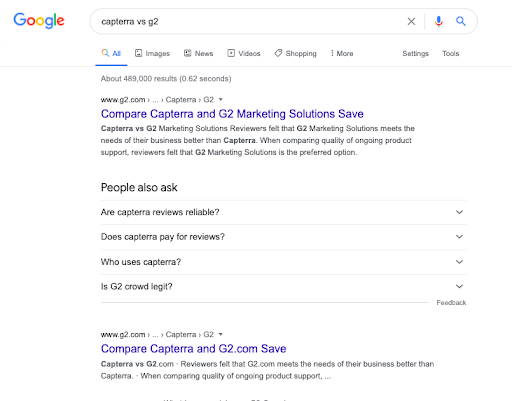What can companies do to protect their corporate reputation?
A spotless corporate reputation should be the primary concern for brands. Why is that? According to Ink., 91% of consumers conduct brand research either regularly or occasionally, with 68% developing an opinion after reading between one and six online reviews. If people speak negatively about your brand, chances are it will hurt your bottom line.
In the following article we’re going to share with you the principles of corporate reputation management and list the top strategies that you can follow to make sure your renown stays intact. We will also discuss how Nestle and Samsung dealt with their own reputation crises. Let’s dive in!
Core principles of corporate reputation management
Before we proceed to the specific strategies, let’s first discuss the crucial components of business reputation management.
Establishing company ethics
By establishing a set of ethical rules that all your employees should follow, you leave very little room for any wrongdoing that could lead to a crisis. Amazon is a great example of this approach. The brand put in place six tenets that set the tone for their Customer Service. These include advocating and trusting the customer, as well as minimizing the effort required on their part to solve their issues. All of this translates into high customer satisfaction, which is reflected in Amazon’s high NPS score.

Source: Forbes
Put a social media strategy in place
As your company interacts with clients and prospects on social media, it is imperative that you set high expectations for your social media management. Remember that an unaddressed issue can quickly become a full-blown crisis – which we discuss further in this article. Among other things, you should make clear:
- which department/employee owns which channel or area
- what the customer communication tone of voice should be
- how to respond to negative comments (for example, following a template)
- how fast should you reply
- what do you do if a social media crisis occurs despite your best efforts, etc.
Prioritize brand management
Another pillar of your company reputation management strategy should be effective brand management. In order for it to be successful, your brand team needs to continuously communicate and strategize with both the PR and social media teams. In fact, what makes a great Brand Management team is the constant use of data – and the knowledge on how to gather it from your tools. Only through an informed approach will the team be able to make adequate decisions that align with the current brand image.
One of the tools brand managers can use to analyze their company’s online reputation is SentiOne, which lets you track and instantaneously respond to all company mentions, monitor brand health metrics, and spot any anomalies such as a sudden spike in negative comments.
Provide excellent customer service
As mentioned earlier, a customer service department often is what makes or breaks a company. They are the face of your brand, as they regularly communicate with clients. Therefore, they need to know how to do it according to corporate standards and goals. 61% of customers will take their business to a competitor after a poor customer service experience – which is why you should make sure your CS agents are on top of their game.
Top strategies for corporate reputation management
Optimize your SEO
SEO does more for a company than ‘just’ driving organic traffic. First impressions matter – your brand name’s Google results are a significant part of your corporate reputation. This is why you want content that speaks positively about your business displayed as prominently as possible. One way of doing so is creating and optimizing your own content.
Here’s an example: we googled the phrase “Capterra vs G2”, both popular review platforms. As you can see on the screen, G2 owns the top two search results. Capterra does not appear until result #7. This means that G2 is the clear winner and can certainly make their brand shine in comparison to their competitor.

Use online reputation management tools
Online reputation management without appropriate tools can be a nightmare. Imagine a situation where someone talks badly about you online without tagging you. By the time you find the mention, the story might already have spread to numerous platforms and escalated into a serious crisis. This is why it’s necessary for PR managers to use business reputation management tools such as SentiOne: they allow users to spot any negative comments and nip them in the bud.
Maintain 24/7 moderation if you’re a global brand
If you’re a global brand, your clients won’t care much for the fact that your customer support or social media moderation team only operates during CET working hours. If they have a time-sensitive issue, they want to be certain that you’ve received their query and are processing it.
If you can’t maintain an around-the-clock team, make sure that you have:
- Alerts set to brand mention anomalies and crisis-related keywords
- A chatbot that can help resolve simple queries after hours.
Both of these can be set up by using SentiOne.
Ongoing communication between social media, CS, and PR departments
As we already mentioned, customer-facing and strategic teams need to be in regular contact.
Your CS or social media moderation teams have first-hand feedback from clients – they can fill in your PR employees on the most common issues or concerns. Meanwhile, PR and brand managers decide how the brand wants to be seen, which has to be reflected in how customer support responds to queries. Support agents must also know how to spot a potential PR crisis before it escalates.
Let’s now see how global brands handle corporate reputation crises – here are two stories from Samsung and Nestle.
How two global corporations handle reputation crises
Business reputation management crisis handled by Samsung
Samsung can serve as an example of an exceptionally well-handled corporate reputation crisis.
In 2016, the company was on everyone’s lips due to their newly released Galaxy Note 7 smartphone – however, it was for all the wrong reasons. As you might remember, Galaxy Note batteries all over the world kept overheating and exploding. The company replaced the phones, thinking they were just part of a faulty manufacturing batch. Little did they know though, the replacements also ended up having the same issue. From there, things got completely out of control – the phones were banned from planes and became the source of jokes and memes.

Source: DailyMail
Eventually, the company discontinued Note 7 production. So, how did they manage to restore trust?
Firstly, Samsung held itself accountable. They promised to find the root cause and delivered on it. Among others, they:
- Hired over 700 researchers and engineers and ran tests on >300,000 batteries to trial them across all conditions. As a result, they developed a new battery safety system
- They communicated their findings online
- As reported by Business Insider, “Samsung and its agencies set up a war room in the immediate aftermath of the crisis, monitoring media reports and consumer sentiment online day in and day out to make sure everyone was on the same page and up to speed on the latest”.
The result of their brand restoration campaign? The following year, Samsung announced that they had the ‘best sales ever’ on the Samsung Galaxy S8 phone (30% higher than that of S7).
Business reputation management crisis handled by Nestle
Nestle is a perfect example of how a brand shouldn’t deal with a crisis.
In 2010, Greenpeace started a campaign against KitKat, one of Nestle’s leading products, due to its reliance on palm oil, which contributes to deforestation. Around 250k people took part in the campaign which primarily happened on Facebook and turned out to be one of the most successful social media campaigns of all time.
Users posted on Nestle’s Facebook page asking the brand to stop using palm oil. Instead of trying to contain the situation, Nestle ignored the questions. Instead, they deleted the majority of negative comments and published a message asking not to post on their profile if the comment included a modified version of their logo: such messages were to be deleted.
Nestlé failed to respond to the crisis, and instead of effectively addressing people’s negative comments, they chose the “easy” way out by deleting them. The brand’s lack of effective social media strategy has left a significant mark on the company’s reputation and contributed to Greenpeace’s social media campaign success.
Summary
If you want to make your corporate reputation bulletproof, it is imperative that you establish the right principles for your business. There are four pillars of effective company reputation management – defining brand ethics, creating a social media strategy, setting a brand management strategy, and establishing customer service standards.
There are a number of tactics you can use, including investing in SEO, providing 24/7 customer service, and using online reputation management tools like SentiOne. The latter will not only help you track your company’s mentions and brand sentiment, but will also alert you of any potentially incendiary keywords and anomalies. As a result, you’ll be able to ensure that your brand image is under control.
Interested in learning more about SentiOne’s capabilities? We offer a free demo!



